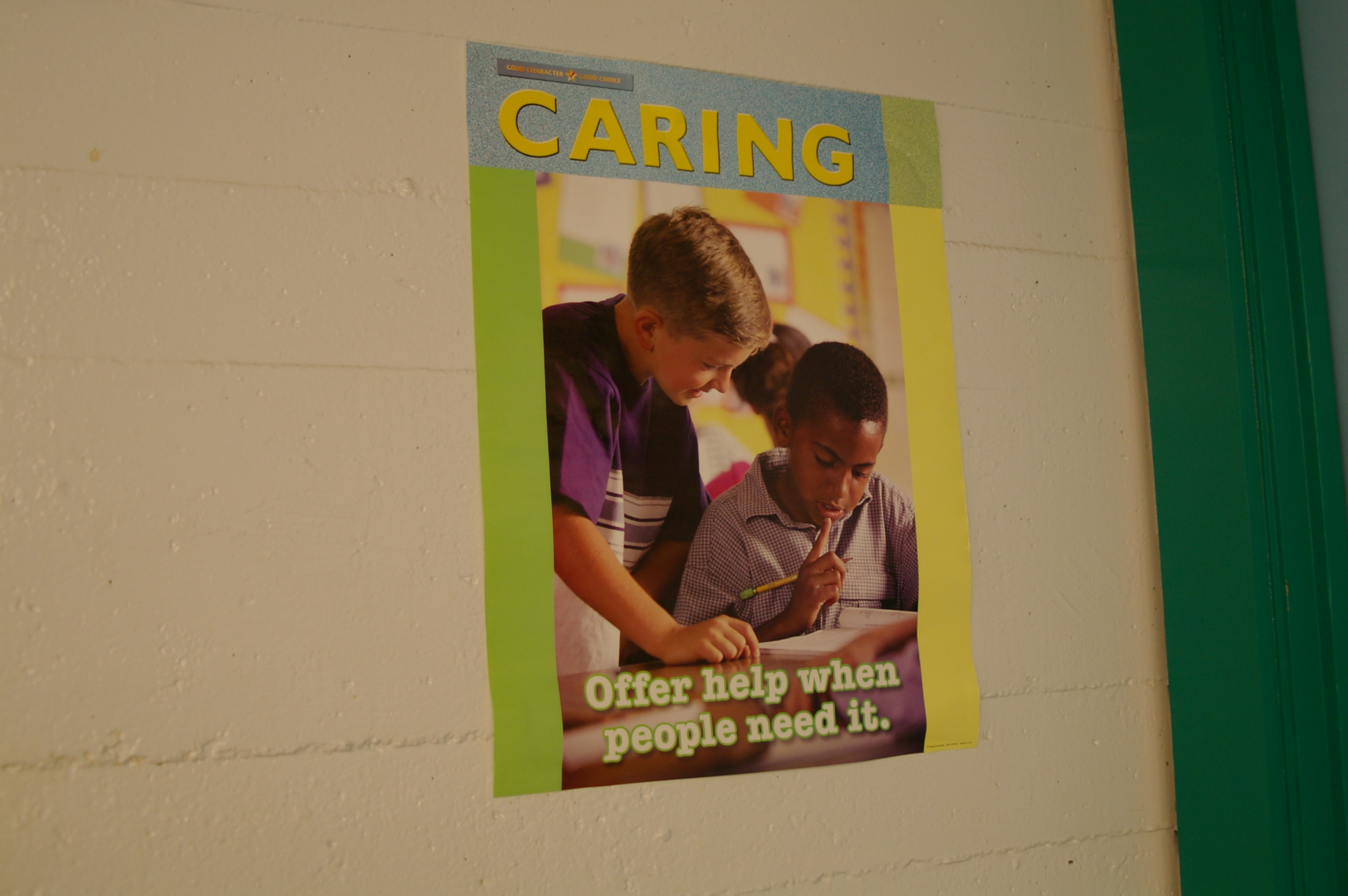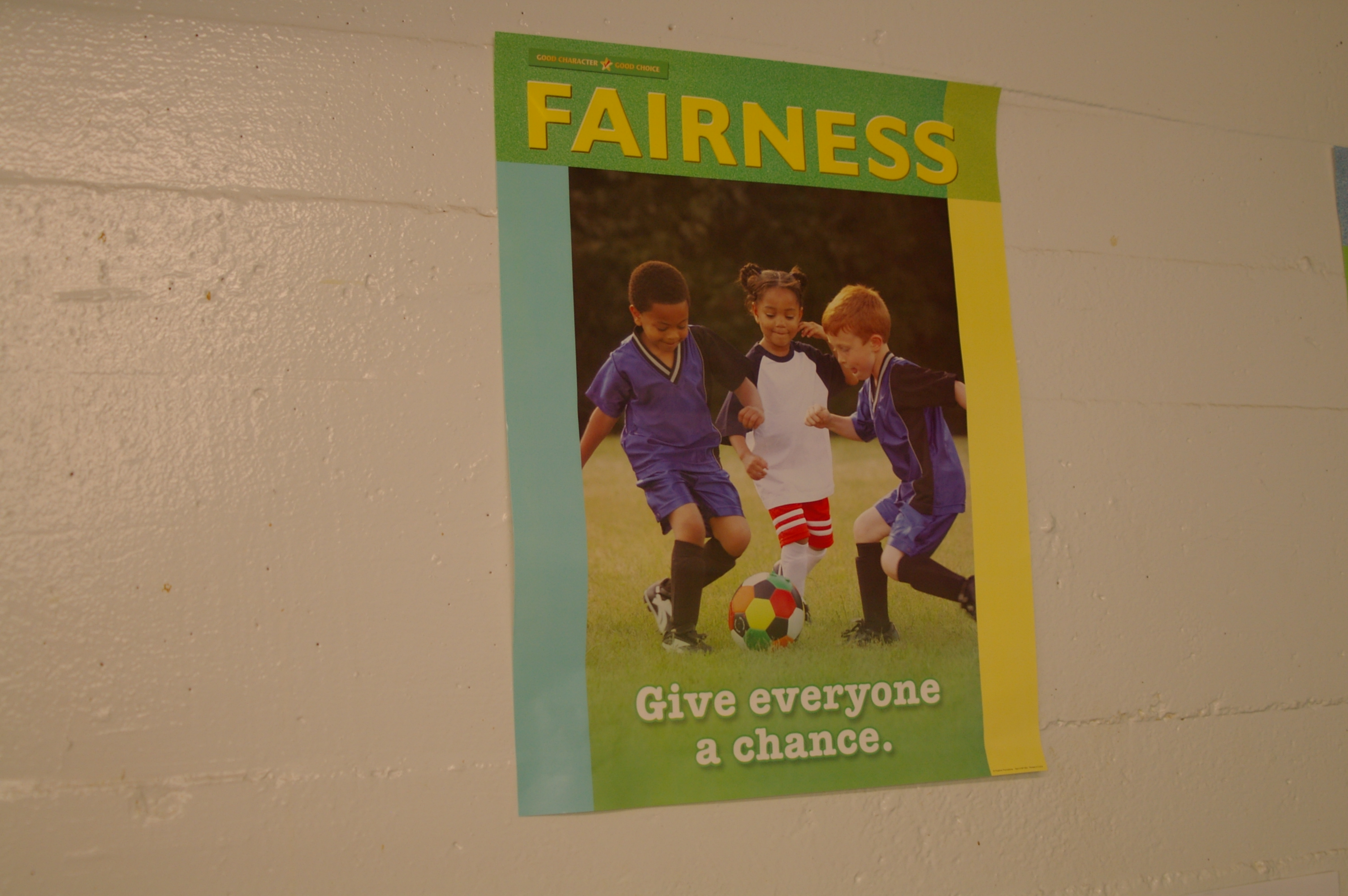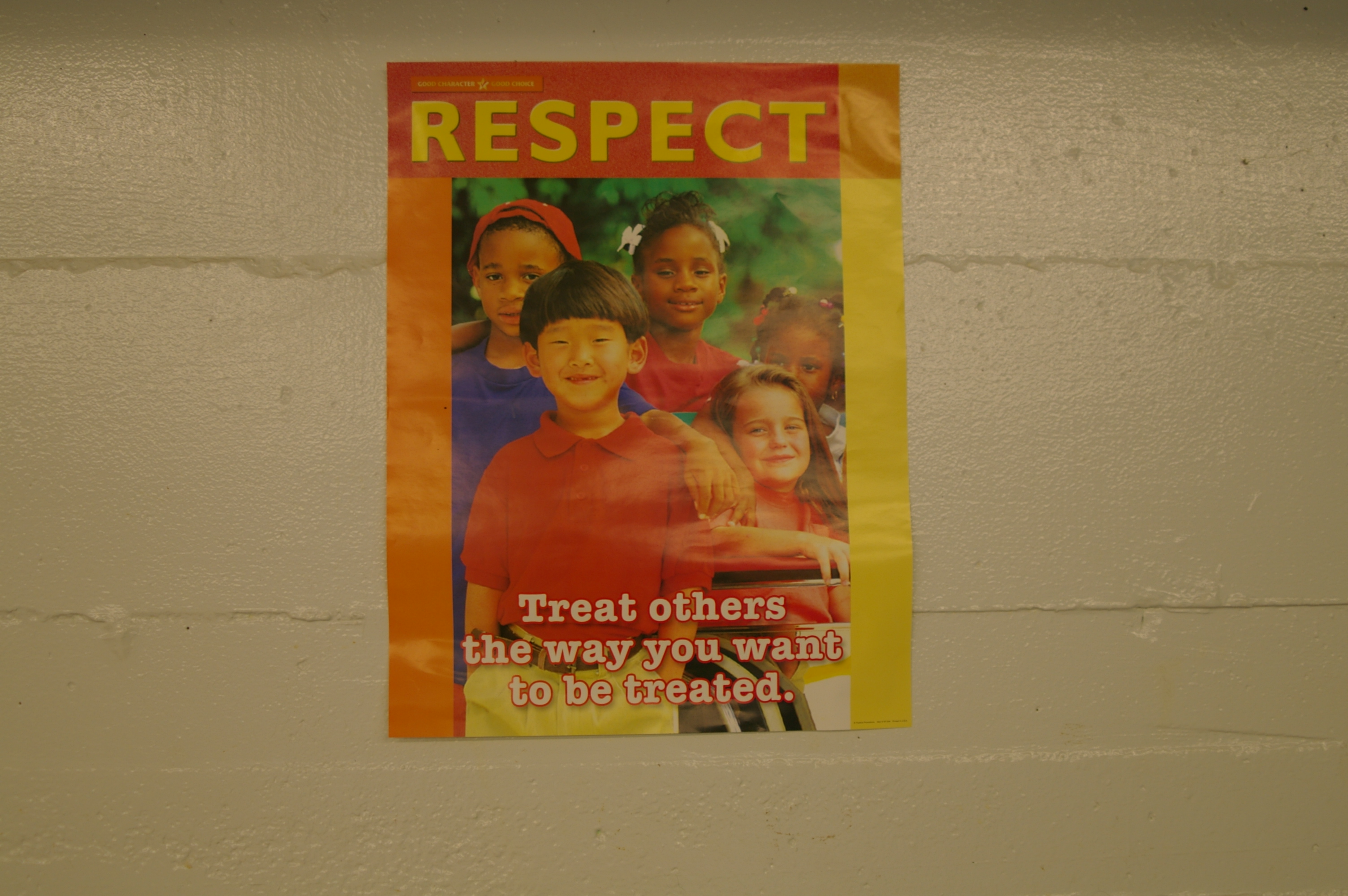In The Trouble With Friendship, Benjamin DeMott argues that it is suggested, all too often, that the solution to our troubled race relations is just, well, getting to know and like each other. Television and the movies, for example, are replete with examples of racial harmony. I mean, who doesn’t have a black friend or neighbor!?
DeMott’s friendship ideology obscures the institutional causes of racial inequality that undergird racial tension in our society. Learning to like each other is not going to solve racial inequality in our society because individual one-on-one racism does not exhuast the disadvantage faced by people of color in our society.
In this light, I present to you three pictures, submitted by Muriel M. M., of posters found in an elementary school.
The posters reflect the friendship ideology. Of course, it is nice to encourage friendship and support across racial lines, the danger is in letting our race education stop there.




Comments 6
Kipp — October 25, 2008
I think the images bear some scrutiny, though, for even in their support of the friendship ideology, they bear the not-so-hidden residue of paternalism. For instance, in the first image, the African American boy is seated and confused and the European American boy is standing over him, offering assistance; what does this suggest about who tends to need help and who has the benevolence and wherewithal to offer it? The second image shows cross-racial boys wearing the same uniforms--the commonality and unity of their gender--being fair to the differently dressed, differently gendered girl. The third image, while more subtle, still seems to make a point via positioning that the most different person in the photo, and therefore the one who needs most to receive, rather than offer, respect is the Asian American boy. I would argue that the ways in which difference is figured in each of the photos suggests a one-way proffering of the named virtue in an exchange based more on benevolent paternalism than true mutuality and reciprocity.
Penny — October 25, 2008
No mention of the context of these posters? These are three of the "pillars of character" from Character Counts, a character-education program that many, many elementary schools use (you can see more about it at
http://charactercounts.org )
The other three (because I'm sure you're wondering) are responsibility, trustworthiness, and citizenship. The program (with clear conservative ideological underpinnings) is beyond cheesy, completely empty classroom time at best. Alfie Kohn (link below) calls it the "If it's Tuesday, This Must be Honesty" approach, and that's pretty much what I've seen in the local school. But it's worth knowing about, because it's everywhere in schools, YMCA programs, etc.
http://www.alfiekohn.org/teaching/hnttv.htm
Bagelsan — October 25, 2008
@ Kipp: Yeah, I saw the first poster by itself initially, and I thought the post was going to focus on the creepy colonial theme. ...Aw, look at that non-white kid trying to learn to read! Doesn't he look soo puzzled! He could clearly use some help from a blond boy!
Dubi — October 26, 2008
(sigh). Like I said in previous posts - there's no pleasing you. Or Kipp, for that matter. I wonder what undertones you'd have found if the first image was reversed. I'm sure you would've. It's always the jumping to conclusions: since THIS picture depicts the white kid helping the black kid, then the message is that ALL black kids need the help of ALL white kids. Pfa.
But, to the original post: I respectfully disagree. I think it is ridiculous to think that somehow things will end there. Kids who grow up to be adults who believe that all men and women are equal will be grown ups who truly question the inequalities in their society, and oppose them. They will not be able to dismiss a statistic on imprisoned African-Americans by saying "that's the way they are". They will know, because they were raised to know it, that there is nothing inherently different about black people. And therefore, they will know that there is something inherently wrong in a system that causes a disproportionately large number of black men to end up in prison.
It's much more than not being racially discriminating as an individual, it's about cultivating a natural aversion to discrimination everywhere, based on a real belief in the idea of equality and the basic sameness of all human beings.
So, yeah, if schools were to do ONE thing right about racial relations (and we can't hope that they'll do more than that), then this would be the best option.
SociologicalMe — October 29, 2008
Dubi- Read some Goffman, or check out the "Killing us Softly" videos. The sexist and racist undertones in ads and images like this are widespread, and worth paying attention to.
ANN DUCILLE ON “ETHNIC” BARBIES » Sociological Images — August 13, 2009
[...] a related post on race and friendship, see here. 15 Comments Tags: capitalism, children/youth, cultural imperialism/(neo)colonialism, [...]